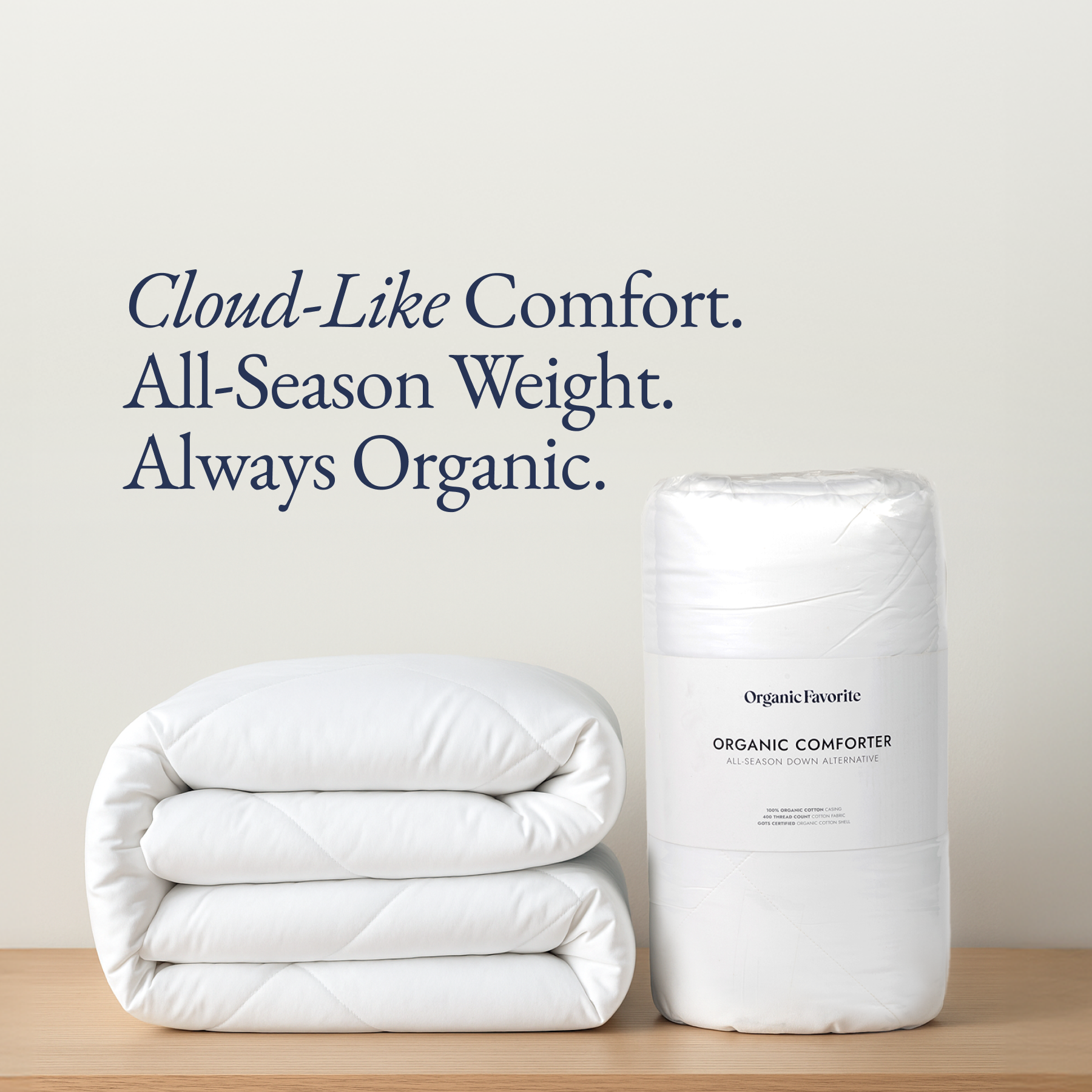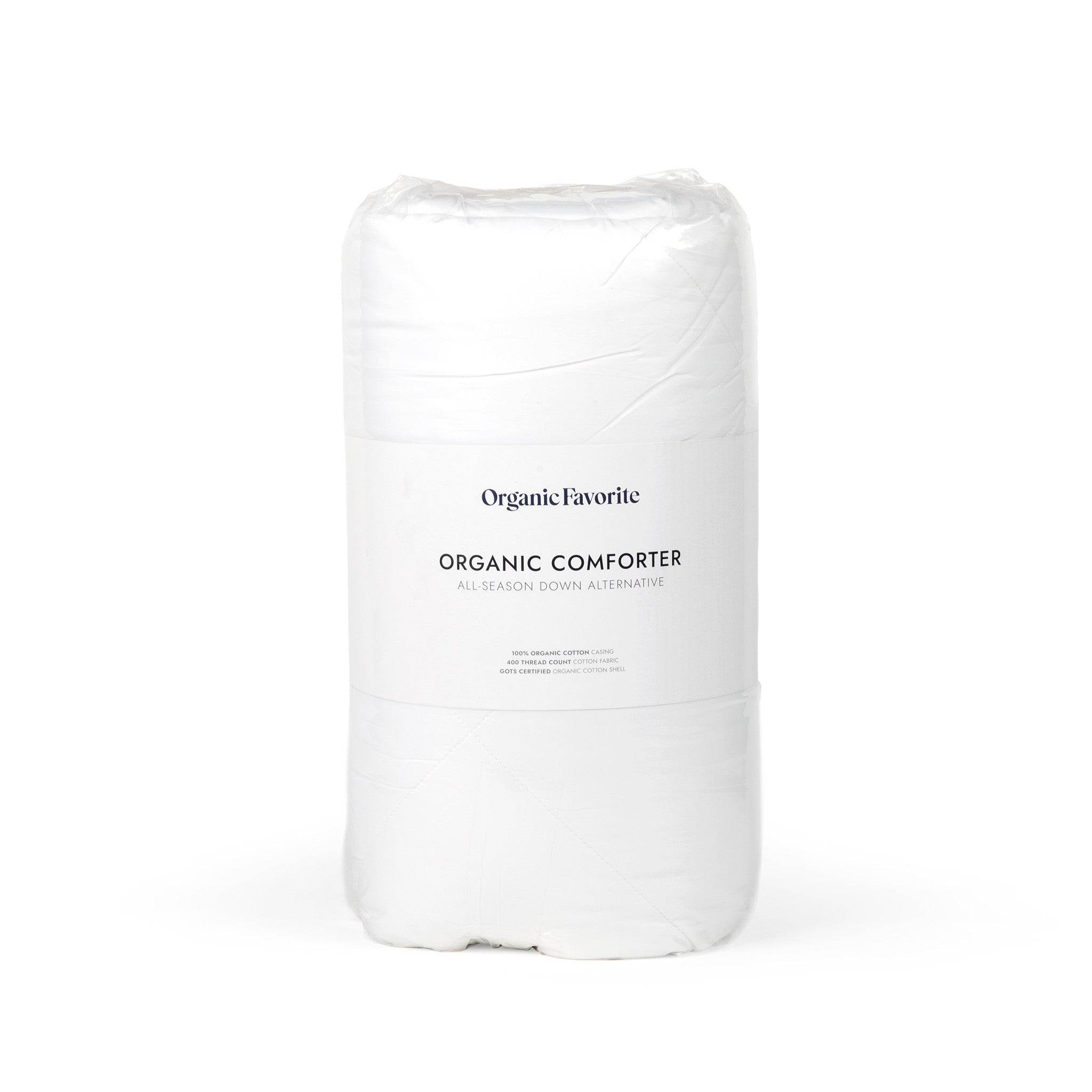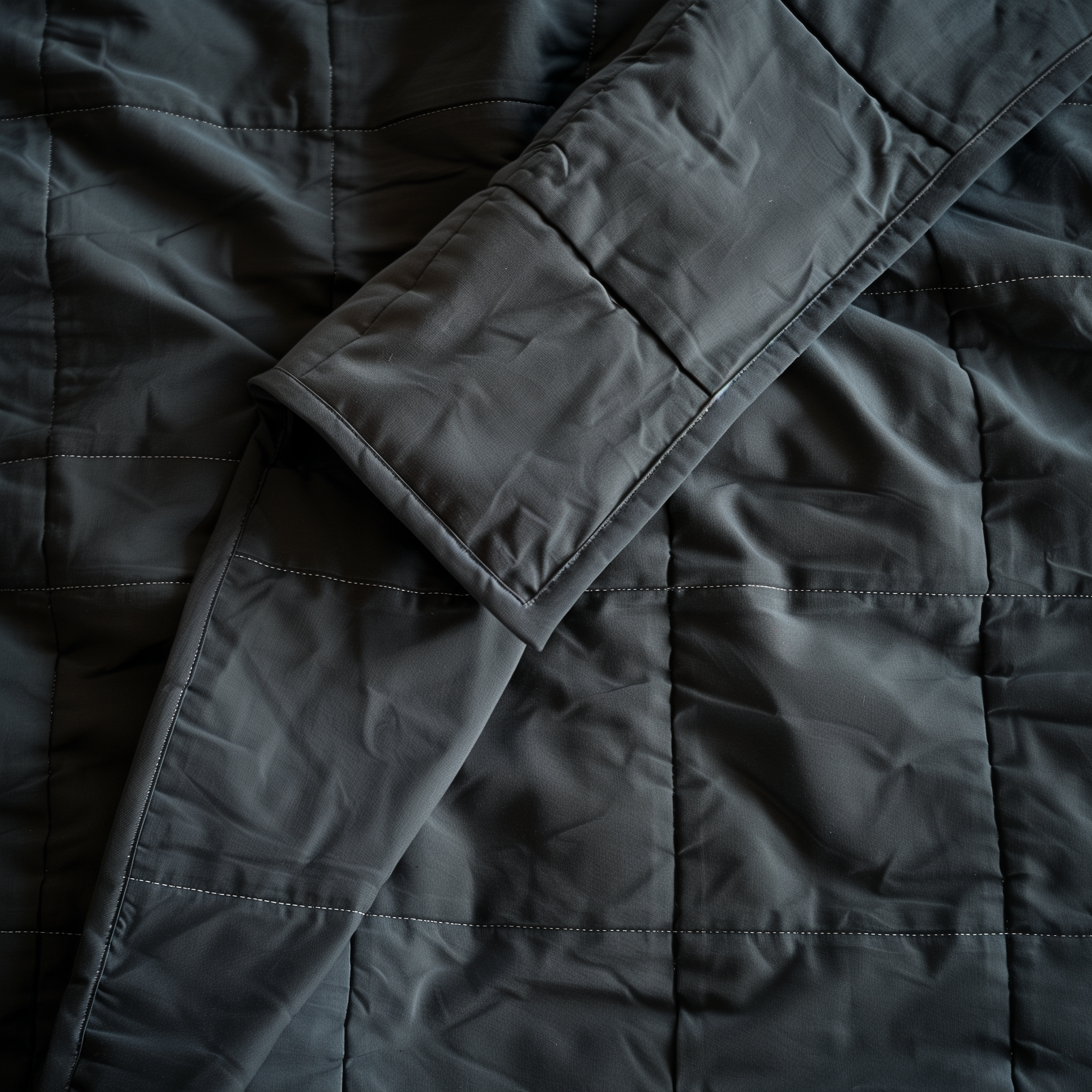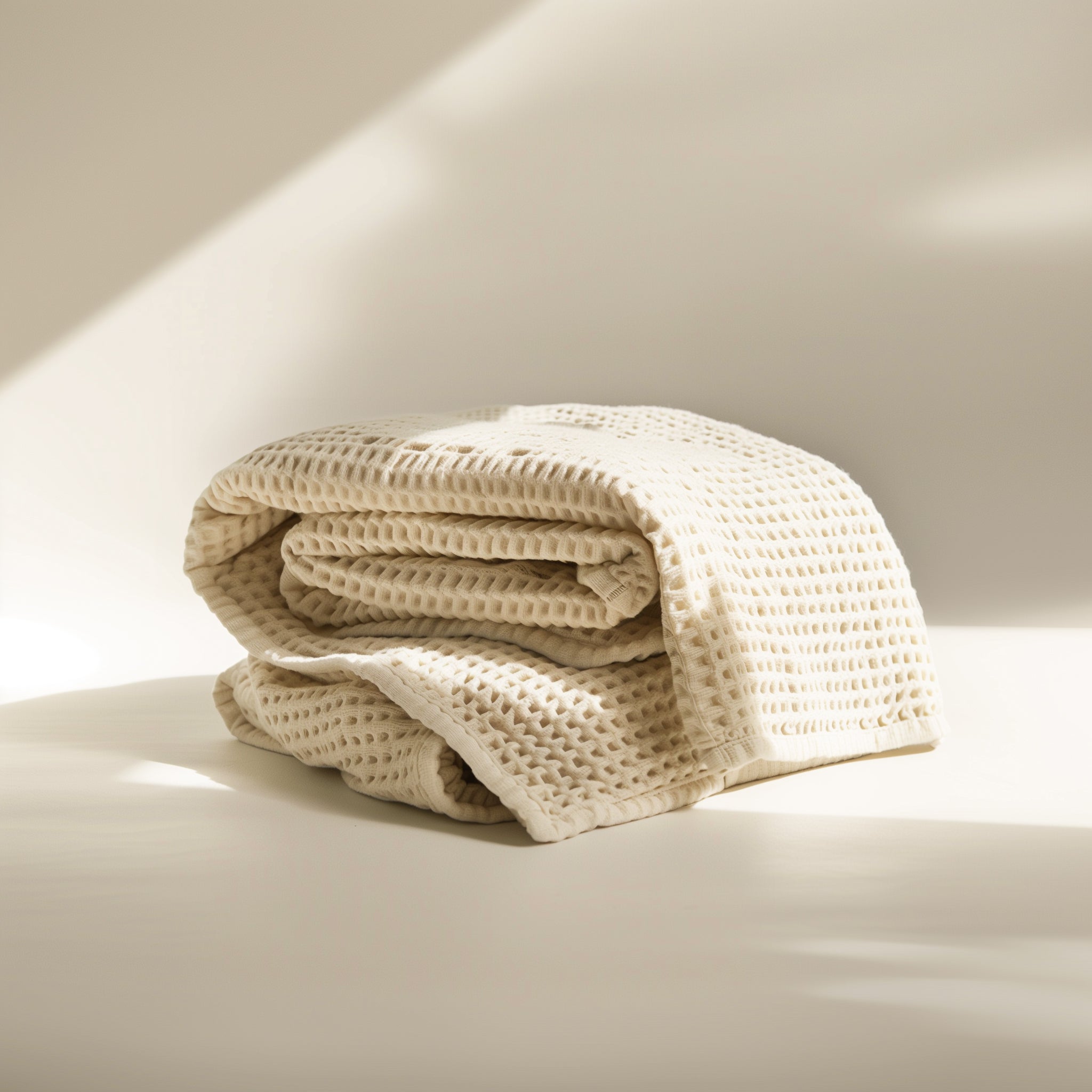Look down at the shirt you're wearing right now.
Do you know what it's made of?
I don't just mean the material on the tag. I mean the raw ingredients, the industrial chemicals, the hidden risks.
I asked myself this question recently, and the answer horrified me.
It sent me down a rabbit hole of scientific journals and data sheets, and what I found is a story every family needs to hear. This is the story of the two fabrics that dominate our closets, and the choice we make between them every single day.
The Contenders: What is Polyester?
Let’s start with the reigning champion of fast fashion: polyester.
At its core, polyester is plastic. Specifically, it's a petroleum-based polymer called polyethylene terephthalate (PET), made from the same fossil fuels as gasoline and plastic bottles.
It’s durable, wrinkle-resistant, and great at wicking moisture, which is why it’s everywhere. But its creation requires a heavy chemical lift.
A key ingredient used as a catalyst in its production is antimony trioxide, a chemical classified by the International Agency for Research on Cancer (IARC) as "possibly carcinogenic to humans."
As a 2021 study in the journal Regulatory Toxicology and Pharmacology confirmed, this antimony doesn't just stay in the fabric; it can leach out when exposed to artificial sweat.
The Contenders: What is GOTS Certified Organic Cotton?
Now, let's look at the alternative.
GOTS-certified organic cotton is a natural fiber, not a synthetic polymer.
The Global Organic Textile Standard (GOTS) is the highest possible certification, acting as a promise from seed to shelf. It guarantees the cotton is grown without toxic pesticides or GMOs.
Crucially, it also guarantees the finished fabric is processed without harmful chemicals like chlorine bleach or formaldehyde.
It is breathable, naturally soft, and hypoallergenic. It's a fabric designed to work with your body, not against it.
The Health Showdown: A Chemical Mismatch
This is where the investigation gets truly alarming. It's not just about what the fabric is; it's about what it carries.
I found a groundbreaking 2017 study published in Environmental Science & Technology that tested everyday textiles for bisphenols, a family of endocrine-disrupting chemicals that includes BPA. The results were staggering.
When researchers compared synthetic fabrics (like polyester and nylon) to cotton, they found the mean concentration of BPA in the synthetic samples was over 128 times higher than in the 100% cotton samples.
And where did they find the highest levels of all?
Infant socks. Some synthetic baby socks contained BPA concentrations as high as 13,285 ng/g.
BPA is a known endocrine disruptor, meaning it can interfere with our body's delicate hormonal systems. To find it in such high concentrations in clothing—especially for infants—is a profound betrayal of trust.
The Environmental Footprint: Extraction vs. Renewal
The choice between these two materials is also a vote for two completely different futures for our planet.
Polyester's lifecycle is one of extraction and pollution. It begins by drilling for fossil fuels. Its production is energy-intensive. It is not biodegradable, meaning every polyester shirt ever made will exist for hundreds of years. And with every wash, it sheds thousands of microplastic fibers and leaches catalyst chemicals like antimony, contributing to what the Biver et al. study calls a "global, diffuse pollution of the aquatic environment."
GOTS-certified organic cotton, on the other hand, comes from a system of renewal. It starts with a plant grown in healthy soil that captures carbon from the atmosphere. It's biodegradable, returning to the earth when its life is over. And its farming methods use significantly less water than conventional cotton, promoting biodiversity and protecting natural resources.
The Performance Test: Function vs. True Comfort
To be fair, polyester has its place. For high-intensity athletic situations, its moisture-wicking properties are effective. It holds vibrant, chemical-based dyes well and resists wrinkles.
But for the other 99% of your life—working, sleeping, relaxing, holding your kids—organic cotton is the clear winner. Its natural breathability means it doesn't trap odor-causing bacteria the way synthetics do. It's soft and gets softer with every wash.
It's the difference between a functional plastic shell and a truly comfortable, living fiber.
The "Recycled" Argument: A Half-Measure
But what about recycled polyester, made from plastic bottles? It's a step in the right direction, and it's certainly better than using virgin fossil fuels.
However, it doesn't solve the core health and environmental problems.
A recycled polyester shirt can still contain and leach the same chemical additives as a new one. It still sheds the same non-biodegradable microplastics into our water with every wash.
It turns a single-use plastic problem into a wearable one, but it doesn't eliminate the plastic itself.
The Ethical Question: Who Made Your Clothes?
The story of a fabric goes beyond its chemical makeup. It includes the hands that made it.
The GOTS certification isn't just about environmental standards. It includes strict social criteria, ensuring fair wages and safe working conditions for every person in the supply chain. You know that from the farm to the factory, people were treated with dignity.
The world of synthetic fast fashion, tied to the global fossil fuel industry, is notoriously opaque. It's often impossible to know the true human cost of a cheap polyester shirt.
Making an Informed Choice: Washing Is Not Enough
So, what can you do?
The research offers one piece of practical advice: washing new synthetic clothes before the first use can help reduce exposure to some of the most mobile chemicals.
But this is not a solution. The same study notes this "does not, however, completely solve the problem as low concentrations of antimony continue to be released...after multiple laundering cycles."
Worse, another study by Xue et al. discovered that laundering can actually cause cross-contamination, spreading BPA from a "high-shed" garment to all the other clothes in the wash.
The only real solution is to choose better from the start. Read the label. Prioritize natural fibers. And look for the GOTS seal as an absolute guarantee of purity and safety.
The Verdict: An Overwhelming Case
When you put them side-by-side, the choice becomes clear.
While polyester may have a niche role in specific performance wear, the overwhelming evidence shows that for our health, our planet, and our communities, GOTS-certified organic cotton is the superior choice for everyday life.
The things we wear, the sheets we sleep in, and the towels we dry ourselves with are our most intimate possessions. They are our second skin. Choosing organic isn't a luxury; it's a conscious, powerful act to protect it.









